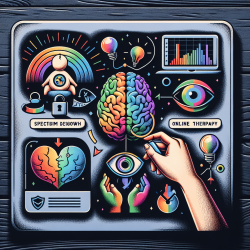Clinical reasoning is a cornerstone of effective practice in health professions. It involves the cognitive processes that practitioners use to evaluate and manage patient care. Despite its importance, clinical reasoning remains a complex and multifaceted concept that is often described using a variety of terms and frameworks across different health professions.
The Importance of Clinical Reasoning
The ability to reason clinically is essential for making informed decisions in patient care. It encompasses various skills such as critical thinking, problem-solving, and decision-making. Effective clinical reasoning leads to better patient outcomes and enhances the overall quality of healthcare services.
Mapping Clinical Reasoning: Insights from Research
A recent scoping review titled "Mapping clinical reasoning literature across the health professions: a scoping review" provides valuable insights into how clinical reasoning is conceptualized and described in health professions literature. This comprehensive review analyzed 625 papers spanning 47 years, highlighting the diverse terminology used to describe clinical reasoning across different health professions.
Diverse Terminology in Clinical Reasoning
The review identified 110 different terms used to refer to clinical reasoning, categorized into six overarching themes:
- Reasoning Skills: Abilities needed for clinical reasoning, such as cognitive skills and critical thinking.
- Reasoning Performance: Aspirational goals like competency and expertise.
- Reasoning Process: The 'how' of reasoning, including analytic thinking and intuition.
- Outcome of Reasoning: Results from the reasoning process, like diagnosis or management plans.
- Context of Reasoning: Influences on reasoning such as situational awareness.
- Purpose/Goal of Reasoning: The 'why' behind reasoning activities.
Implementing Research Outcomes in Practice
The findings from this scoping review offer several pathways for practitioners to enhance their clinical reasoning skills:
1. Embrace Diverse Terminologies
Understanding the varied terminologies used in clinical reasoning can help practitioners appreciate different perspectives and approaches within their field. This awareness can foster more effective communication and collaboration among healthcare teams.
2. Focus on Skill Development
The emphasis on reasoning skills highlights the importance of continuous professional development. Practitioners should engage in training programs that enhance their cognitive skills, critical thinking, and problem-solving abilities.
3. Contextualize Clinical Reasoning
Acknowledging the context in which clinical reasoning occurs can improve decision-making processes. Practitioners should consider factors such as patient preferences, cultural influences, and situational variables when applying their clinical reasoning skills.
4. Pursue Interprofessional Education
The variability in terminology across health professions underscores the need for interprofessional education (IPE). Engaging in IPE initiatives can help practitioners understand different conceptualizations of clinical reasoning and improve collaborative practice.
Encouraging Further Research
This scoping review serves as a foundation for further exploration into the complexities of clinical reasoning. Practitioners are encouraged to delve deeper into this topic by conducting their own research or participating in collaborative studies that seek to refine our understanding of clinical reasoning across disciplines.
Mapping clinical reasoning literature across the health professions: a scoping review
Conclusion
The journey to mastering clinical reasoning is ongoing. By implementing insights from current research and embracing a multidisciplinary approach, practitioners can enhance their skills and contribute to improved patient care outcomes. As we continue to explore this vital aspect of healthcare practice, let us remain committed to learning, growing, and collaborating for the betterment of our patients and communities.










